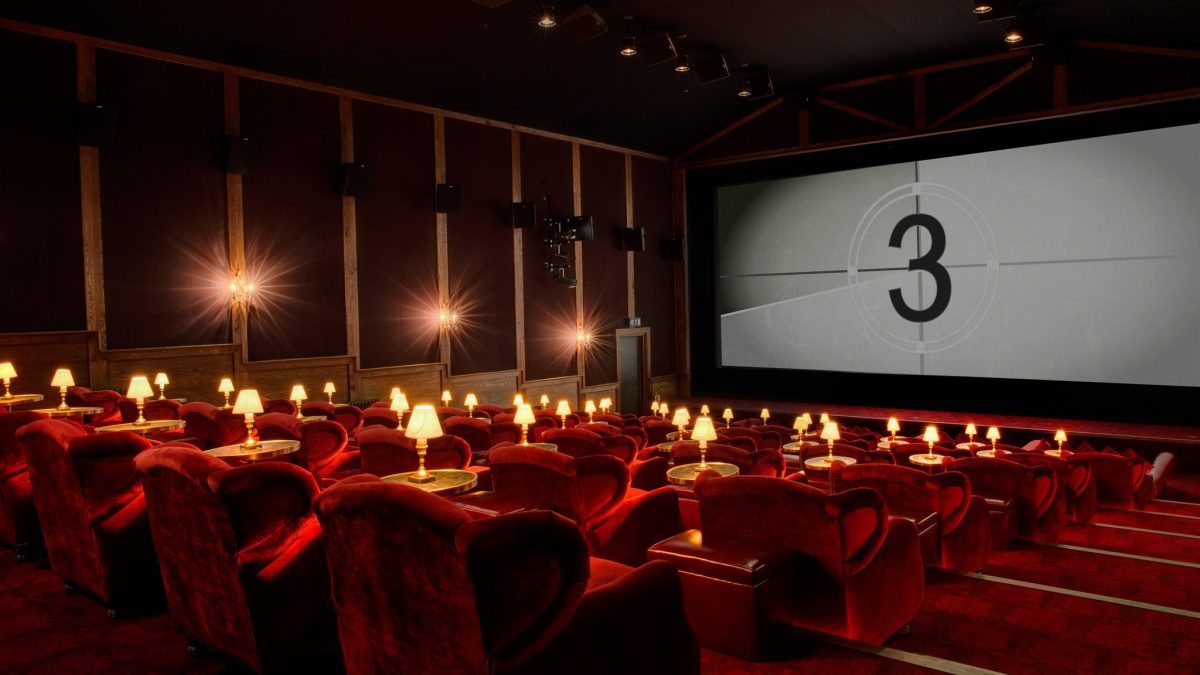
Data-driven cinema has arrived!
All too often, we as a society simply dive headlong into a new technology without even stopping for a second to consider the consequences.
Some of you reading this will remember a time when people refused blindly any idea of putting their credit card details into the web.
These days, consumers happily enter even there more personal data (including the dreaded “dick pic”) into platforms that retain the right to use such data “as they choose”.
Big data is one of the ways that we have chosen to run headfirst into something that we have not stopped to give much thought about.
Why do we do such things?
Well, the answer is simple, the payoff! Anything that we perceive to make our lives better is something we are likely to agree too.
It’s for this reason that we allow companies to collect such massive amounts of data on our user habits.
The fact that they use this data to make our lives easier vastly overrules any potential misuse of our data.

Plus, never forget the power of denial. Ever heard this one – “It doesn’t matter anyway because I am a good person and don’t have anything to hide!”
Big Data Here We Come
Whether you like it or not, big data is here to stay. In fact, big data is going to increasingly influence your lives, from which route your self-driving car chooses to take you to work to how much cat food your automated cat feeder orders every month.
Every single industry, without exception, is set to fall under the spell of big data analytics, and the movie industry is no exception.
In the not so distant future, almost every single aspect of a film’s production and marketing is going to be affected by big data.
Everything from the movie script, the actors chosen to star, to how the movie is marketed and distributed will be influenced by big data analytics.
But is this what audiences really want? And what about the filmmakers?
Audiences Love Big Data
The lightning-fast adoption of big data solutions that have helped improve our lives online shows just how willing we are to sit back and let big data take over.
It follows that we will adopt the same behavior when it comes to any aspect of our lives, so long as the perceived benefits always outweigh the risks.
Therefore, when it comes to movies, the vast majority of audiences are unlikely to blink an eye when it comes to data-driven moviemaking. In fact, it is likely that the service will improve the films to the point that they will actually prefer films that were created using big data analytics.
Main Benefit of big data analytics to audiences
Tailor-made films that will eventually even include different factors such as endings based entirely on their past preferences.
The recent screening of Netflix’s Black Mirror: Bandersnatch was just the first step towards totally interactive movies and TV series’. While there were only a limited number of choices offered in this episode of Black Mirror, future shows will be very different.

The amount of big data held on each of us is set to grow so big that, one day, there will be no need to even offer us selections within our shows, but rather allow sophisticated AI-powered algorithms to do the hard work for us.
This way, we will each watch individually tailored films and TV shows that will best suit our individual tastes.
So it is fair to say that audiences are going to love data-driven moviemaking.
Filmmakers And Big Data
Moviemakers, on the other hand, will almost certainly greet big data analytics movie making with a great deal of apprehension.
While the industry recognizes that sectors such as Hollywood are driven by money, even these filmmakers consider themselves as artists.
Most Hollywood filmmakers made at least a few good short movies on their way to the top. Some have even taken time out to make them after they got big.
Upon arrival to Hollywood, many simply found themselves bending to the needs of the producers to include more changes, bigger names, and, yes, action and dumb car chases.
The simple truth is that the vast amount of B-list Hollywood filmmakers simply are not given much room to be the artists they could be. These people are much more likely to accept big data determining an increasing amount of what their movies become.
When it comes to the art-house movie community, there will almost certainly be blood when big data arrives.
So-called independent filmmakers pride themselves on creating art movies.
The idea behind these movies is that they are created as per a ‘vision’. This vision is driven by the artistic core of the production, namely the scriptwriter, the director, and the actors.
This core comes together to drive home what it is the movie is about, ideally without any commercial considerations.
Naturally, these artists would be fundamentally opposed to commercially focused big data forcing them to change their films in some manner.
Just imagine having to approach legendary director Michael Haneke to tell him that big data had suggested that his audiences would prefer his film if he made the ending easier to understand, or telling Pedro Almodóvar that he could increase his audience size if he just added a few strong male characters.
The simple fact is that the art-house community will resist the application of big data analytics to their films.
How and whether this bridge can ever be gapped is a matter for what the future holds.





Stay connected